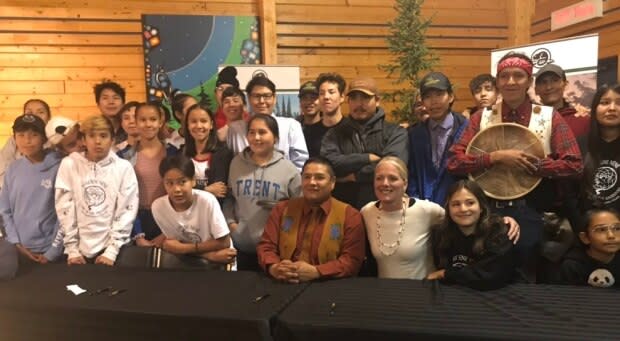Thaidene Nëné National Park Reserve becomes N.W.T.'s newest protected area
After decades of negotiations and planning, First Nation, Métis, and government officials are celebrating the creation of Canada's newest national park reserve.
A community event is being held Wednesday in Łutselk'e, N.W.T., where agreements will be signed between Parks Canada, the Łutsel K'e Dene First Nation, the Deninu K'ue First Nation, Yellowknives Dene First Nation and the Northwest Territories government for the creation of Thaidene Nëné National Park Reserve.
The Northwest Territory Métis Nation signed on at a similar event Tuesday in Fort Resolution.
The agreements establish Thaidene Nëné, or "Land of the Ancestors" in the Denesoline Yati language, as a new permanently protected area in the Northwest Territories. The name was chosen through a competition in Łutselk'e and agreed upon by the community.
The park reserve consists of 26,525 square kilometres of land northeast of Łutselk'e. It encompasses boreal forest, tundra and freshwater ecosystems in and around the East Arm of Great Slave Lake, and is home to caribou, muskoxen, wolves, birds and fish, along with other animals. It is only accessible by boat or flying in.
At the core of Thaidene Nëné is a 14,305-square-kilometre national park protected by Parks Canada. Adjacent is 12,220 square kilometres of territorially protected areas and a wildlife conservation area.
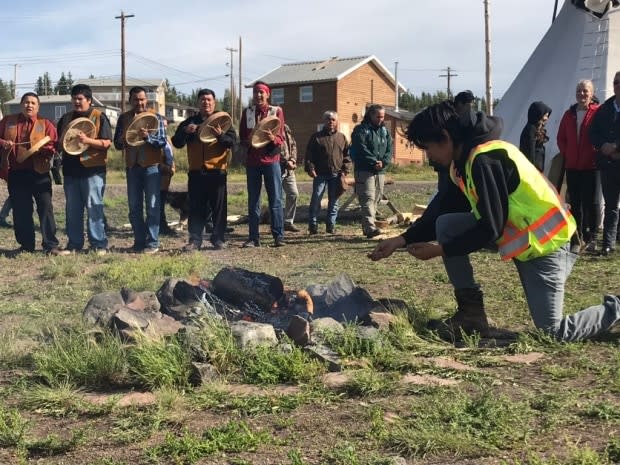
Reached on Wednesday morning, Łutsel K'e Dene First Nation lead negotiator Steven Nitah said he plans to "greet the day with a smile."
He said he is reflecting on the time, energy and challenges the community and the negotiating team faced to get to where they are today.
"What we're doing today is bringing our Crown partners into the fold," said Nitah. "Lutsel K'e has been protecting Thaidene Nëné for a long time now ... That was the original Dene law for us."
"Thaidene Nëné is an area of breathtaking beauty, natural abundance and immense cultural significance to the Indigenous communities in the region," Catherine McKenna, minister responsible for Parks Canada, said in a statement.
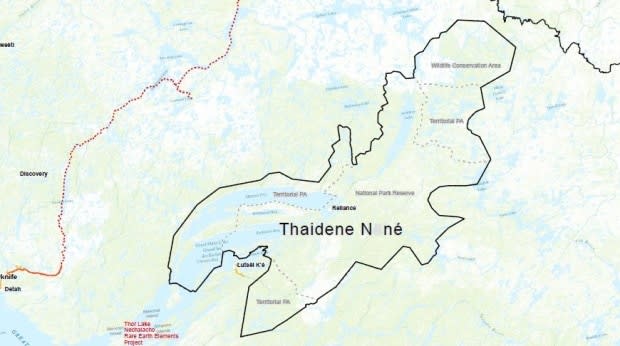
Along with signing agreements, the federal government also announced it would provide more than $7.9 million for the establishment and operation of Thaidene Nëné territorially protected areas. This comes from the Challenge Fund, part of the Nature Legacy Initiative announced as part of the 2018 federal budget.
The Canadian government says it will invest $40 million over the first 12 years toward infrastructure and operations for the national park reserve, and $3.4 million per year thereafter.
The Lutsel K'e Dene First Nation said it will provide protection over the entirety of Thaidene Nëné as an Indigenous protected area, with the Ni hat'Ni Dene Rangers or "Watchers of the Land" serving as guardians.
"The protection and stewardship of Thaidene Nëné is the sacred responsibility of the Łutsel K'e Dene First Nation, as passed down to us through the generations from our elders," Chief Darryl Marlowe said in a statement.
"Achieving the protection of Thaidene Nëné for the Łutsel K'e Denesoline is a decades-long dream, and is a critical step towards ensuring our way of life can be maintained and shared with all Canadians."
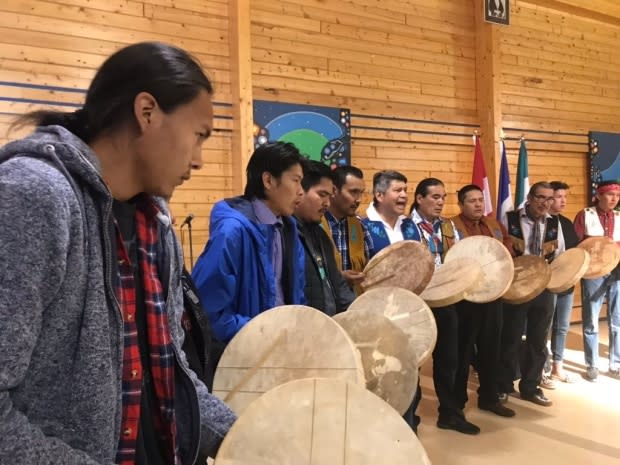
The First Nation said Thaidene Nëné is a step toward reconciliation between Indigenous peoples and other Canadians as decisions on the park will be made by consensus between First Nations and the federal and territorial governments.
It also said the park will bring economic opportunities to the region, including new jobs in resource management and visitor engagement. Local residents have already launched tourism enterprises and there are plans to build a Thaidene Nëné interpretation and administrative centre in Łutselk'e.
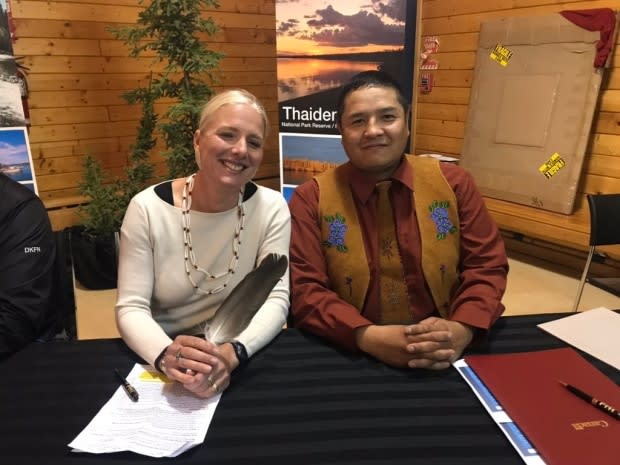
Last-minute agreement with Métis
While many are celebrating the creation of the park reserve, which Parks Canada has been working on creating since the 1970s, Thaidene Nëné hasn't been without opposition.
The territorial government and Parks Canada's screening approach for Thaidene Nëné has come under fire, as federal legislation pertaining to the park reserve was passed before the environmental and screening processes were complete.
Concerns have also been raised by industry, including the president of the N.W.T. Chamber of Mines, as no access corridor will be allowed — that's an area designated for road development allowing for ground transportation — through the park reserve, which could make it difficult for companies to develop in the southeastern part of the territory.
And the North Slave Métis Alliance, Northwest Territory Métis Nation and the Yellowknives Dene First Nation have voiced concerns over whether the park reserve will affect their rights to hunt, trap and fish.
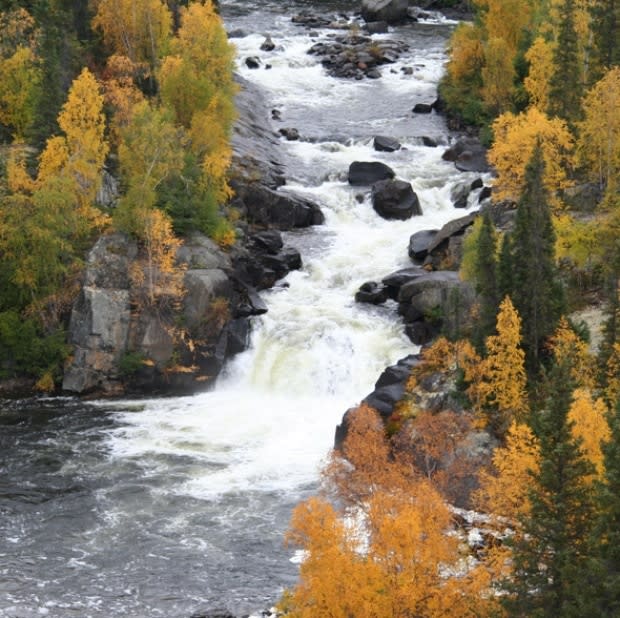
However, Northwest Territory Métis Nation President Garry Bailey said at Tuesday's signing that his issues — including taxation on cabins in the area, among others — were settled with last-minute discussions.
Bailey said he made the decision to ultimately accept the deal and sign the agreement on Monday night at 9:30 p.m.
"It's good for all parties," he said. "I'm confident it's going to go good."
Parks Canada has said Indigenous treaty rights will be protected within the park.
There will be activities Wednesday to mark the occasion, including a feeding the fire ceremony and community feast.
